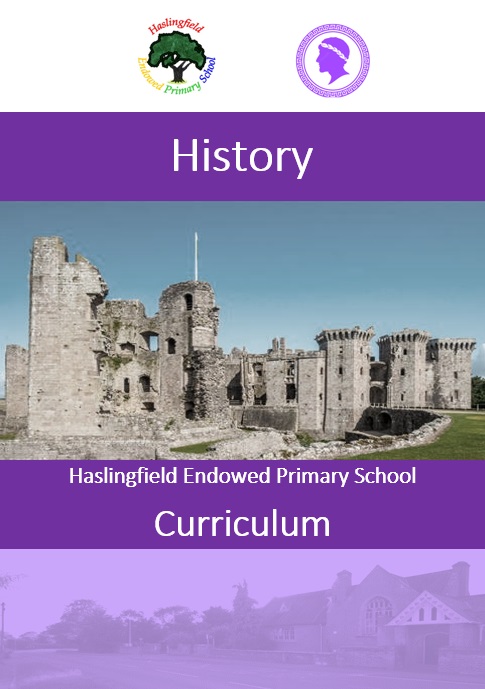Our History Curriculum
Click on the image above to access our history curriculum document
Intent
The history curriculum at Haslingfield Endowed Primary School draws from and makes full use of the immediate and wider local area, enabling children to develop a deep understanding of the rich history of their locality.
Topics are informed by the national curriculum and are sensitive to children’s interests, as well as the context of the local area. The history curriculum is carefully planned and structured to ensure that current learning is linked to previous learning and that the school’s approaches are informed by current pedagogy. In line with the national curriculum 2014, the curriculum aims to ensure that all pupils:
- Gain a coherent knowledge and understanding of Britain’s past and that of the wider world
- Are encouraged to ask perceptive questions, think critically, weigh evidence, sift arguments, and develop perspective and judgement;
Begin to understand the complexity of people’s lives, the process of change, the diversity of societies and relationships between different groups, as well as their own identity and the challenges of their time.
